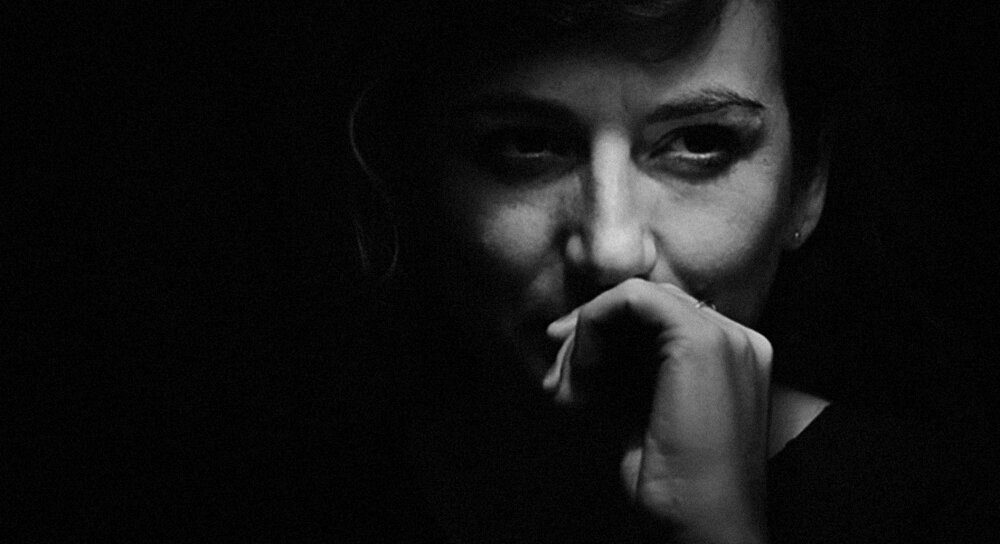Hedda – by Aurore Fattier
« Not all women are cut out to be mothers.”
Ibsen’s notes, About H. Gabler
Director’s statement
Hedda is a rewriting and contemporary transposition of Ibsen’s Hedda Gabler.
The purpose of the mise en abyme of this classic, staged with the costumes of its historical aestheticism, is to show, by confronting this story with what could be a contemporary news item (the feminicide of a young actress and the repercussions on her relatives), all the difference that exists between the violence that women endure in the real world and the way in which it has been idealized through the cultural monuments erected by our forefathers.
Through our Hedda, we ask the question: what are these classics about?
We will draw up portraits of several generations of women, through different degrees of reality (from the almost mythological figure that is Hedda to a documentary portrait of Laure), and we will ask deliberately provocative questions:
Can one be a woman and an artist?
How can one continue to embody and perpetuate the violence done to women when one carries life within herself?
What does one have to lose, to sacrifice, in the life of a woman artist, and to gain what?
How do we inherit our oppressive male cultural models, how do we deconstruct them, how do we free ourselves from them, both from an intimate and artistic point of view?
Synopsis
Laure Stijn Milner, a forty-year-old theatre director, is the descendant of a great dynasty of Belgian artists and industrialists.
Our story begins with her staging Ibsen’s Hedda Gabler. Through this play, she wants to pay a tribute to her young actress sister, who died ten years earlier as a result of the physical and psychological abuse of her boyfriend during an important theatre production, when she graduated from the conservatory. Through the figure of Hedda Gabler, Laure wants to refer to what is commonly called #metoo#theatre, in homage to her sister.
Unconsciously, Laure has burdened herself with too much proximity and intimacy with the various protagonists of this production. Her fiancé, an actor, will play the role of Tesman, while her ex-boyfriend will play Løvborg. To stage the minister’s villa, the scene where Hedda Gabler is set, Laure has obsessively reconstructed part of her own childhood home, which she sees as a symbol of a heritage with a troubled past. She also wants to use the piano compositions of her father, once a great composer, as music for the show. Yet her father has partial amnesia and has stopped playing since his daughter’s death.
« When a woman has a career, she discards certain things, forgetting that she will need them when she becomes a woman again. »
All about Eve, Mankiewicz
Laure’s political and aesthetic ambitions are quickly overtaken by the intimacy between this fiction and her personal history, and the production is interrupted before finally taking place.
The problems reach a climax when the actress who was supposed to play Hedda (an actress who looks disturbingly like Laure’s sister) announces that she is pregnant and finally refuses to embody the violence of the role, more specifically Hedda’s suicide.
In the middle of rehearsals, the actress disappears. The show then turns into a fantastic thriller. The police investigates. Where is she? Is she dead? Did she run away? And the audience wonders: does she really exist? Is she the ghost of the young sister who died ten years earlier?
The show will eventually take place. And it will be a success. We will see part of Laure’s staging of the last act of Hedda Gabler: the director will play the character of Hedda herself, offering an unexpected ending and thus repairing the violence inflicted on all the actresses who have had to play the terrible scene since the role was created.
This mirror structure (making off, backstage creation of a show/performance of the play) will allow the audience to superimpose in a playful way the life of the actors to the life of the characters of the play Hedda Gabler, and thus to immerse themselves in the fiction of the play, making these two women’s existences, these two worlds, that a century separates, resonate.
Premiere: 18 September 2022 in Théâtre de Liège
Credits
Conception, text, direction Aurore Fattier
Cast Maud Wyler, Carlo Brandt, Alexandre Trocki, Yoann Blanc, Delphine Bibet, Fabrice Adde, Valentine Gérard, Annah Schaeffer, Lara Ceulemans and Deborah Marchal (alternately), Fabien Magry
Dramaturgy Sébastien Monfè
Cinematography Vincent Pinckaers
Director’s assistants Lara Ceulemans and Deborah Marchal
Costumes Prunelle Rulens
Set design Marc Lainé
In collaboration with Stephan Zimmerli assisted by Juliette Terreaux
Light Design Enrico Bagnoli
Musical composition Maxence Vandevelde
Technical direction Nathalie Borlée
Video control Gwen Laroche
Production Théâtre de Liège
Co-production Solarium asbl, Théâtre National Wallonie-Bruxelles, Théâtre Royal de Namur, ThéâtredelaCité-CDN Toulouse-Occitanie, Comédie de Valence-CDN Drôme-Ardèche, Les Théâtres de la Ville de Luxembourg, Théâtre National de Nice, Mars – Mons arts de la scène, Comédie de Reims, Prospero – Extended Theatre (co-funded by the Creative Europe Programme of the European Union)
With the support of the Tax Shelter of the Federal Government of Belgium







